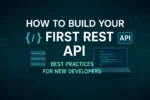Top 10 Coding Challenges for Beginners in 2026

Starting your coding journey can feel overwhelming. With so many languages, frameworks, and tutorials, it’s easy to get lost in the noise. But the fastest way to improve your skills is through hands-on practice and that’s where coding challenges come in.
Whether you’re in the USA preparing for your first tech interview or in the UK building a portfolio, solving coding problems sharpens your logic, improves problem-solving skills, and builds confidence.
In this blog, we’ll explore the Top 10 Coding Challenges for Beginners in 2026, complete with examples, resources, and tips to practice.
Why Coding Challenges Matter for Beginners
Before we jump into the list, here’s why you should focus on coding challenges:
- Improves Problem-Solving Skills → Teaches you to think like a programmer.
- Strengthens Logic → You’ll learn how to break problems into smaller parts.
- Prepares for Interviews → Many tech companies in the USA/UK use coding challenges during hiring.
- Boosts Confidence → Solving even small problems builds momentum.
Internal Link: If you’re just starting out, check our Beginner’s Guide to HTML Basics.
External Link: Platforms like LeetCode and HackerRank are great for practice.
Top 10 Coding Challenges for Beginners
Here are ten beginner-friendly coding problems you can start solving today.
1. Reverse a String
Problem: Write a program that takes a string and reverses it.
Example:
- Input:
"Hello" - Output:
"olleH"
This teaches you string manipulation and working with loops.
2. Check for a Palindrome
Problem: Determine if a given word or number is the same when reversed.
Example:
- Input:
"madam" - Output:
True
Palindrome checks are often used in beginner-level coding interviews.
3. FizzBuzz Challenge
Problem: Print numbers from 1 to 100, but replace multiples of 3 with "Fizz", multiples of 5 with "Buzz", and multiples of both with "FizzBuzz".
This is one of the most famous beginner challenges and tests your looping and conditional logic.
4. Factorial of a Number
Problem: Find the factorial of a number using recursion or iteration.
Example:
- Input:
5 - Output:
120
Teaches recursion, a key concept in computer science.
5. Find the Largest Number in an Array
Problem: Given a list of numbers, return the largest one.
Example:
- Input:
[3, 7, 2, 9] - Output:
9
Great practice for arrays and loops.
6. Count Vowels in a String
Problem: Write a function that counts the number of vowels (a, e, i, o, u) in a string.
Example:
- Input:
"Limitless Coding Titans" - Output:
7
Teaches pattern recognition and iteration.
7. Simple Calculator
Problem: Create a basic calculator that can add, subtract, multiply, and divide two numbers.
A step toward real-world applications and logic building.
8. Prime Number Checker
Problem: Write a function that checks whether a number is prime.
Example:
- Input:
7 - Output:
True
Introduces mathematical logic and efficiency.
9. Sorting Numbers
Problem: Sort an array of numbers in ascending or descending order.
Example:
- Input:
[4, 2, 9, 1] - Output:
[1, 2, 4, 9]
Beginners can use built-in sorting functions, then progress to writing their own sorting algorithm.
10. Fibonacci Sequence Generator
Problem: Print the first n numbers of the Fibonacci sequence.
Example:
- Input:
5 - Output:
0, 1, 1, 2, 3
A great way to learn loops, recursion, and sequences.
Where to Practice These Challenges
Here are some beginner-friendly coding platforms (popular in USA & UK):
- HackerRank → Good for beginners.
- Codewars → Fun challenges ranked by difficulty.
- LeetCode → Essential for interview prep.
- freeCodeCamp → Free interactive coding tutorials.
Internal Link: Once you master these challenges, check our Top 15 Git Commands Every Developer Should Know to manage your code efficiently.
Tips for Solving Coding Challenges
- Start Small → Pick easy problems and build confidence.
- Break It Down → Solve problems step by step instead of all at once.
- Practice Daily → Even 20 minutes a day builds consistency.
- Learn from Mistakes → Debugging teaches you more than success.
- Pair Up → Join coding communities in the USA/UK (Reddit, Discord, or local meetups).
FAQs – Coding Challenges for Beginners
Q1: Which language is best for beginners to solve coding challenges?
Python is the most beginner-friendly due to its simple syntax.
Q2: How many coding challenges should I solve per day?
For beginners, solving 1–2 problems daily is enough to build consistency.
Q3: Do I need to learn algorithms before solving coding challenges?
No, start with basic problems first. Algorithms come naturally as you practice.
Q4: Are these challenges enough for job interviews in the USA/UK?
For entry-level roles, yes. But for advanced interviews, you’ll need to learn data structures and algorithms.
Q5: Can I use AI tools like ChatGPT or GitHub Copilot to solve challenges?
Yes, but use them as learning aids. Try solving on your own first, then compare.
Wrapping Up
Coding challenges are the fastest way to grow as a developer. From simple string manipulation problems to classic tasks like FizzBuzz and Fibonacci, these exercises will sharpen your skills and prepare you for real-world coding.
If you’re just starting in 2026, focus on:
- Daily practice → 1–2 problems a day.
- Easy-to-use languages like Python or JavaScript.
- Platforms like HackerRank, Codewars, or freeCodeCamp.
Once you’ve practiced these challenges, learn how to apply them in real projects with our Step-by-Step Guide to Setting Up a React Project. Explore GeeksforGeeks Beginner Challenges.






